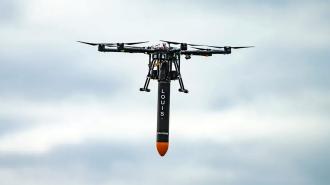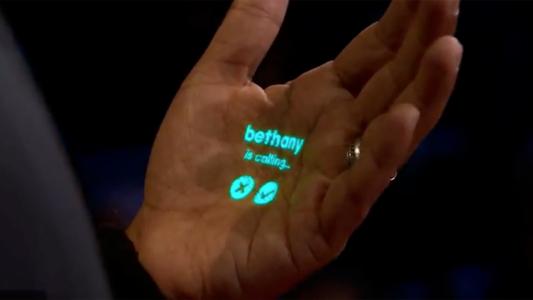To increase scientists’ access to space-like conditions, British startup Gravitilab has designed a drone system to carry microgravity experiments high into the air and then drop them. Now, thanks to a successful first flight test, we know the system works.
The challenge: Every year, astronauts aboard the International Space Station (ISS) perform about 600 microgravity experiments designed by scientists who want to have their hypotheses tested without the pesky interference of Earth’s gravity.
Unfortunately, many scientists with ideas for microgravity experiments never get to see them carried out on the ISS — the small crew can only dedicate so many hours to science, and the rest of their time goes toward maintenance, exercise, sleep, and other activities.
“Our service can be delivered locally [and] is less expensive.”
Rob Adlard
Scientists can use a parabolic flight to carry out experiments that require less than 30 seconds in microgravity, but those flights can cost thousands of dollars.
Drop towers — structures tall enough that anything dropped from their tops will experience microgravity for at least a couple of seconds before hitting the ground — are another option, but there are only about a dozen of those in the world, and time with them is in high demand.
“The only option for terrestrial microgravity testing [in Europe] until now has been to wait several years for access to a drop tower in Germany, which provides two seconds of microgravity,” Rob Adlard, CEO and technical director of Gravitilab, told Space.com.
What’s new? Gravitlab’s idea for overcoming this bottleneck is to put microgravity experiments into a specially designed capsule called “LOUIS,” use a drone to lift the container high into the air, and then drop it.
In January, the startup tested the system for the first time, and it worked exactly as hoped — the capsule’s payload experienced about 5 seconds of microgravity during its 2,000-foot plummet back down to Earth.
Looking ahead: Gravitilab plans to continue developing its drone system with the goal of being able to drop microgravity experiments from a height of more than 6,500 feet. It hasn’t revealed pricing for the service, but its website encourages potential customers to make contact.
“Our service can be delivered locally, is less expensive, and as a result of our demonstration flight, we are on target to offer 5 to 20 seconds of high-quality microgravity using our LOUIS UAV [unmanned aerial vehicle] system,” said Adlard.
Scaling up: In December 2022, the UK Space Agency gave Gravitilab nearly $500,000 to support the development of ISAAC, a reusable suborbital rocket the startup hopes to power with a propellant derived from beeswax.
ISAAC could be a perfect complement to LOUIS — while the drone handles short, lightweight microgravity experiments, the rocket will carry payloads of up to 44 pounds to altitudes as high as 155 miles, providing scientists with up to 5 minutes of exposure to microgravity.
Gravitilab still has a lot of work ahead of it, but if all goes well, it could soon be the go-to service provider for UK researchers looking to get their microgravity experiments off the ground.
We’d love to hear from you! If you have a comment about this article or if you have a tip for a future Freethink story, please email us at [email protected].






